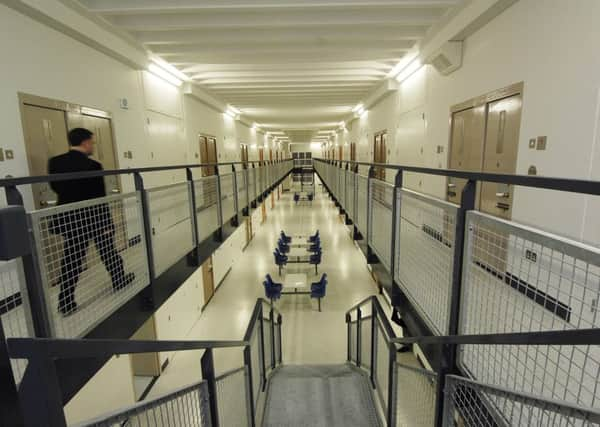MSPs vote to end automatic early release of prisoners


A significant number of long-term prisoners will now never qualify for automatic early release, justice secretary Michael Matheson told MSPs, as he said the shake-up would “add to the public safety”.
The minister said the reforms would “reassure” victims concerned about convicted criminals being let out of jail early, as the stricter rules on early release were passed.
Advertisement
Hide AdAdvertisement
Hide AdHowever, opposition parties warned that prisoners would still be released early and that the law change would put public safety at risk due to a failure to cut re-offending.
Offenders jailed for more than four years will be affected by the new law, which will allow parole boards to keep long-term inmates in prison rather than them being automatically released.
Short-term prisoners are currently entitled to release halfway through their sentence, while long-term prisoners get out after two thirds.
Long-term inmates will be let out six months early for supervision, with serious criminals such as sexual or violent offenders facing longer periods of supervision after their jail sentence, as part of the Prisoners (Control of Release) (Scotland) Bill.
Mr Matheson said: “This bill will add to the public safety and clarity around sentencing. A significant number of long-term prisoners will never be entitled to early release.”
Labour MSP Graeme Pearson, a former senior police officer, said the plan to restrict early release would only affect a “very exclusive” number of inmates and a “small group of prisoners”.
Mr Pearson, a former director general of the Scottish Crime and Drug Enforcement Agency, said: “We should not just be talking about early release; it would be much better to identify a timely period for release with appropriate supervision.”
Conservative MSP Margaret Mitchell said the law change will mean ending early release for just 3 per cent of prisoners and said it would be “foolhardy to support this bill”.
Advertisement
Hide AdAdvertisement
Hide AdShe said: “It will not end automatic early release, it will not reduce re-offending and it will not improve public safety in the longer term; indeed it is likely to jeopardise both public safety and reintegration.”
Liberal Democrat MSP Alison McInnes claimed automatic early release helped to ease the pressure of escalating prison populations as she said the bill was a reminder of the “Scottish Government’s record of disjointed penal reform”.
The bill was passed with 67 MSPs voting in favour of the new law and 46 abstaining. No MSPs voted against the legislation.
An attempt by Scottish Labour to give courts the power to decide what period a released prisoner should be supervised for and a move by the Conservatives to delay the government’s plans were blocked by the SNP.